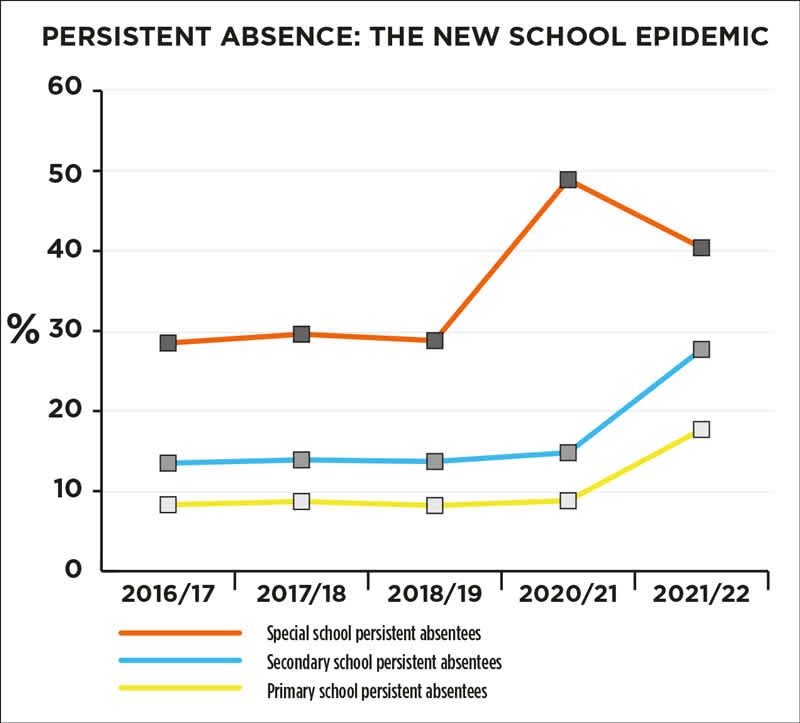Absence in schools is growing
An article in schools week shows why we need to worry about the education systems as a whole. Parents and pupils are ever increasingly pick and choosing whether to attend school.
The search for solutions is keeping headteachers awake at night but, despite concerted efforts, absence rates are not improving.
7.5 per cent last year, according to Department for Education data of schools absense.
Persistent absenteeism – where pupils miss 10 per cent or more classes – has more than doubled, rising from 10.9 per cent in 2018-19, to 22.5 per cent last year.
Last year the persistent absentee rate was 17.7 per cent in primaries, 27.7 per cent in secondaries and 40.4 per cent in special schools.
Poorer and SEND pupils are more likely to miss school.
For SEND pupils, according to Arbor’s data, the rate was 40 per cent in secondaries, up from 39 per cent in the DfE’s 2021-22 figures.
Special school pupils fared worse, almost half persistently absent this year.
Arbor’s data also found that gifted and talented children were twice as likely to skip school regularly at secondary (16 per cent) than primary.
Alice Wilcock, head of education at the Centre for Social Justice centre-right think tank, said absence was “the new epidemic for schools”.
These are just some of the reasons we believe why:
COVID-19 pandemic: The pandemic has led to widespread school closures, remote learning, and disrupted schedules. Even when schools reopened, there might have been instances where students needed to self-isolate due to COVID-19 exposure or infections.
Mental health issues: The pandemic has had a significant impact on mental health, particularly for young people. Anxiety, depression, and other mental health concerns may have caused some students to miss school.
Digital divide: With the shift to remote learning, access to reliable internet and digital devices became crucial for education. However, not all students have equal access to these resources, which may have caused some to miss out on their education.
Socioeconomic factors: Economic hardship, job losses, and financial stress on families during the pandemic may have forced some students to take up work or care for family members, making it difficult for them to attend school.
School-related factors: Some students might have disengaged from school due to a lack of support, dissatisfaction with remote learning, or difficulty adjusting to new school routines.
The Use of Fines as a deterring tool;
The government has encouraged the use of fines for parents to get children back to school.
Councils can fine each parent £60, rising to £120 if not paid within 21 days.
In 2021 former education secretary Nadhim Zahawi ordered councils to tell parents that keeping children off had “repercussions”.
However, according to schools weeks, leaders say fines further damage the increasingly fractured relationship between families and schools.
The total number of penalty notices for unauthorised absences plummeted from 333,388 in 2018-19, to 218,235 in 2021-22 – a drop of 35 per cent.
Michael Gove recently suggested that parents who fail to ensure their children attend school regularly could have child benefit payments stopped.
Wayne Harris, deputy head at Washwood Heath MAT’s strategic attendance leader, said fines were a “stick [schools] have been told to beat parents with”.
Publishing school attendance data creates a “pressure cooker environment” which is “not a child-centred approach to supporting families”, he added.
